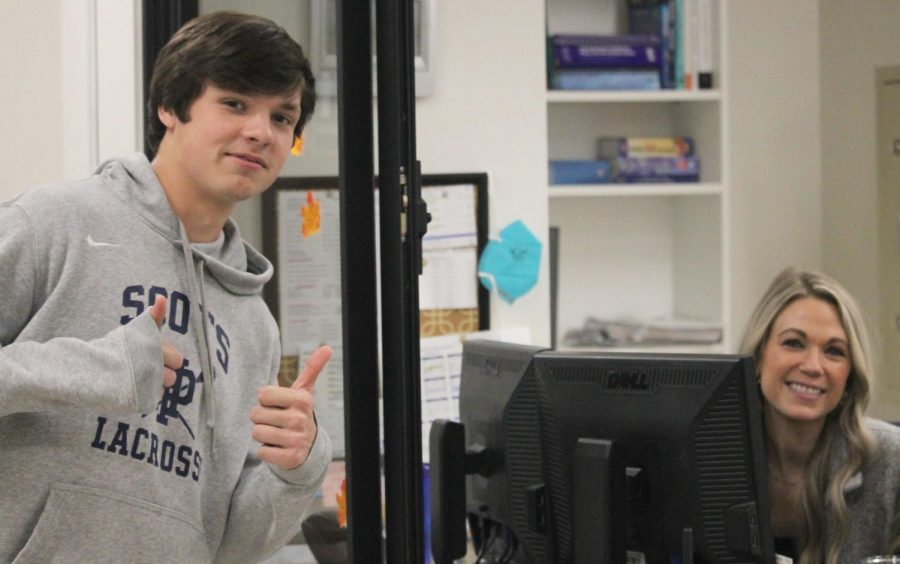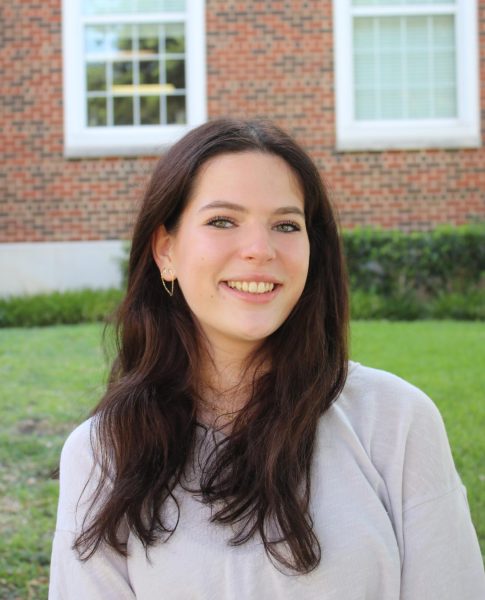The Centers for Disease Control and Prevention recommended the Pfizer coronavirus vaccine for children aged 5-11 years old on Nov. 2.
In its press release endorsing the vaccine, the CDC emphasized the increase in COVID-19 hospitalizations in children after the spread of the delta variant this summer.
“As a mom, I encourage parents with questions to talk to their pediatrician, school nurse or local pharmacist to learn more about the vaccine and the importance of getting their children vaccinated,” CDC director Rochelle P. Walensky said in the press release.
Dr. Lorin Levin, a pediatrician with Clinical Pediatric Associates, said the vaccine is dosed to make it safe for a younger population.
“For the 5-11 year olds, it is actually one-third the amount of the adult dosage,” Levin said. “They are still getting it three weeks apart, but the studies have shown that the kids are showing an immune response equivalent to the higher dosage in adults, so it is highly effective for them.”
She cannot give this version of the vaccine to patients 12 years of age and older because the ingredients are altered.
“It is stored in a different preservative, so that we can keep it longer in the refrigerator, and so that we can keep it out longer to distribute the dosage in our office, which is really nice,” Levin said.
To ensure children don’t spread the coronavirus to at-risk adults, Levin encourages vaccinating young children.
“We need to protect everyone, and we really need to vaccinate our kids,” Levin said.
Choir teacher Nathan Walker had his 6-year-old child vaccinated to allow the family to safely visit their elderly family members, who are at risk because of their age.
“His grandparents live overseas, so for our summer travel, that makes things much less complicated and a little bit more free,” choir teacher Nathan Walker said.
Parent Vlad Leybovich took his 9-year-old son to get the vaccine the week after the CDC endorsed the vaccine for the 5-11-year-old age range. He had already taken his older children to get vaccinated.
“We didn’t feel that this was anything dangerous,” Leybovich said. “The CDC have been very vocal about the vaccine and about the protection it gives, so we felt comfortable giving them the vaccine.”
Other parents choose to refuse the vaccine.
“My sister has six kids, and all of them are under the age of 11,” Leybovich said. “She herself is not getting the vaccine nor is she going to give it to her children.”
Leybovich does not agree with his sister’s decision but acknowledges that it is not his decision to make.
“It is her choice,” Leybovich said. “We are not going to push it on her. It is her decision, whatever she feels is best for her family.”
School nurse Casey Hurlbutt said she trusts vaccine researchers to verify the safety of the vaccine.
“I think it is up to the parents though,” Hurlbutt said. “Because it is so new, I understand the concern.”
Levin said studies indicate that the vaccine effectively increases coronavirus immunity in children.
“[Researchers] see the antibody levels on the new vaccine on the new pediatric age range is equivalent with the adult population, which has been heavily studied,” Levin said.
The arrival of this vaccine brings Levin hope the coronavirus pandemic will wane.
“I think that right now we are getting so close to moving forward and keeping our community safe, and getting the 5-11 year olds vaccinated is just another step in the right direction,” Levin said.




